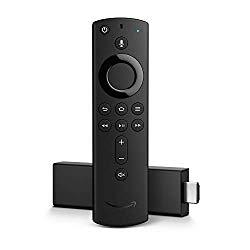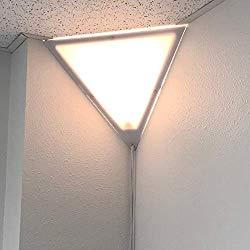I still remember when I got my first apartment. I had been living in the dorms. It was an all-guy dorm and while I liked having the big TV room where we all gathered each night at 10 PM to see reruns of Cheers and the pool table in the basement, having the four-head open shower where one guy liked to cut his hair and leave it on the floor was getting old. Having everyone decide to hang out in the hallway outside of our room and talk all night when I had 8 AM classes was also not enjoyable.
There were some apartments about two miles from campus that I rode by on my bicycle on the way to the mountain biking trails at the edge of town. I decided to stop in and ask to see an apartment. “Do you have a job? How are you going to pay for it?” the lady at the desk asked. After I explained that my parents were giving me money for living expenses while I was in college and that I would be able to pay the rent from that, she finally showed me an apartment and I signed a lease. I then moved into my first place.
In this series of articles under the category of “The Basics of Money Management,” we’ll go through some of the basic things you need to know to be a fully functioning, financially fit adult in the modern world.
(Note, if you click on a link in this post and buy something from Amazon (even if you buy something different from where the link takes you), The Small Investor will receive a small commission from your purchase. This costs you nothing extra and is the way that we at The Small Investor are repaid for our hard work, bringing you this great content. It is a win-win for both of us since it keeps great advice coming to you (for free) and helps put food on the table for us. If you don’t want to buy something from Amazon or buy a book, how about at least telling your friends and family about our website as a great place to learn about investing and personal finance. Thanks!)

Want to always worry about money, or be financially secure? Learn how to become financially independent in FIREd by Fifty: How to Create the Cash Flow You Need to Retire Early
Getting an apartment isn’t hard, but there are a few things to know about the process which will help you out. These are things like leases, security deposits, and reading the market to know how difficult finding a place will be. Once you’re in the apartment, there are also some tricks to stay on your landlord’s good side.
The Search Process
Most of the time there are way more apartments than people, so places will be having move-in specials like first-month free to entice you to sign a lease with them. Other times there will be a renter’s market and you’ll be fighting with other people to get a space, any space. If it is the former, probably the easiest way to find a place is by just driving around the area you’re interested in and looking for signs. If it is the latter, you’ll probably need to scour websites and Craigslist looking for rentals. You might also need to pay an apartment listing service, who you basically give $50 to $100 for a list of places that are renting.
Find kitchen and dining items for your new place
Regardless of the type of market, you’ll want to get a tour of the place. Getting an apartment sight unseen is a recipe for disaster. Beyond finding an apartment that you would want to live in from the layout and square footage, things to look for are: 1) Is the place well-maintained? 2) Where will you park your car? 3) Does the area look safe? 4) Is the location close to public transportation, stores, school, parks, and other things you need/want.
The Paperwork
Once you’ve found a place you like, you’ll need to qualify for the apartment. Basically you’re convincing the renter that you’ll pay the rent and not wreck the place. This usually includes filling out an application, paying for a credit check, and providing references.
If the place is run by a professional management company, they’ll have standard applications. If it is being rented by an individual owner, they’ll probably just ask questions directly. They’ll want to see that you have a regular source of income or a large amount of cash (the former is more common than the latter).

Most places will also run a credit check on you, which you’ll get the privilege of paying for. Here they’ll get a report of all of the loans/leases you’ve taken out and whether or not you paid on time. If you have bad credit or have not taken out many loans, which is probably your case since this is your first apartment, you may need to have a cosigner such as a parent. This is a person who agrees to cover the rent should you fail to do so. Avoid having a cosigner if at all possible since that way your building your credit. One of the best ways to build up good credit is to pay your rent regularly.
Finally, many places will ask for references. If this is your first place, people like your boss, your parents, and others in your life make good references. If you’ve rented elsewhere, they’ll want to speak to previous landlords. Obviously, it is very important to be a good tenant, which means paying the rent on time, not causing disturbances, and keeping the place in good shape since future landlords may call your past landlords and it might be difficult to find a place if there have been issues in the past. Treat the place better than you would if you owned it.
Find kitchen and dining items for your new placeIf you’re in an environment where it is very competitive, expect to pay some extra “fees.” These are things like a fee to the agent who showed you the apartment since some landlords will use outside managers to show places and find tenants who collect their fees from the renters. It is also very possible that you’ll see racism and sexism since environments of scarcity foster corruption. (Some of the worst sexism and racism I ever saw was in trying to get an apartment in Berkeley, California where apartments were scarce.) If you feel you have been discriminated against, there are normally city groups to which you can lodge a complaint against the landlord.
The Lease
If you’re approved for the apartment, you’ll need to sign a lease. Note that leases are made to protect the landlord, not the tenant. Basically, they’ll just say that you’ll have a place to live but that’s about the only thing you’ll get out of the deal. For the landlord, they’ll say things like he/she can sell your stuff if you’re gone for an extended period of time and don’t tell him/her, how he can evict you if you don’t pay the rent, and so on. The good news is that many leases are negotiable and often they are just printed from forms online and the landlord doesn’t really know what they say. If you find something unreasonable in the lease, you might very well be able to have it struck out. Just make sure that any changes are on all copies of the lease, both the one that you get and the one that the landlord keeps.

Most leases have a primary term for the rental like 6 months or a year. After that you might be required to sign another lease if you want to stay or it may become a month-to-month lease automatically, meaning that at the end of a month the lease continues for another month provided the landlord wants you to stay and you pay the rent. Be wary in that some leases will allow the landlord to remove you for whatever reason, like his wife’s brother is moving to the area and wants the place. Also note that while you may think you’ll want a short lease to avoid being locked in, the rent is often fixed for the term of the lease and you might not be able to be forced out without cause. For this reason, it may be in your interest to sign a longer lease if you can and you know that you’ll be staying for a while.
The Deposit
Most apartments will require that you provide a security deposit and pay for the first and last month’s rent when you first get the place. Because the security deposit is often equal to a month of rent, you should be ready to hand over three times the rent when you move in. You will get the security deposit back when you move out, minus perhaps a cleaning fee, if you treat the place well and don’t cause any damage beyond normal “wear and tear.” It is important that you document and existing damage with your landlord before you move in so that you don’t get dinged for it later. One possibility would be to take pictures of the place and send him/her a copy.
Note that most landlords really don’t have it in for you. They just want to get a little extra income from their property and not have people trash it or cause issues. While there may be some who will use some sort of existing damage or make something up to try to keep your deposit, those people are fairly rare. If you encounter one, you can take them to court, or perhaps just let everyone you know about them and get your deposit back in the form of bad publicity.
Being a Good Tenant
It is important to be a good tenant. First of all, it is just the right things to do: Treat others as you would like to be treated. Secondly, many future landlords, and even employers, may check with previous landlords to see how you were as a renter. Remember that they are trying to find good tenants for their place and are trying to avoid the nightmares that some renters are. For this reason, if you get a bad reputation at your first place, it may be difficult to find a nice place in the future. It may also add dollar signs to future rents for you as well since you may only be able to rent in places where they charge a high rate to make up for the risk that you present.
Of course, the main way to be a good tenant is to pay the rent on time and without being asked. The other general rules for being a good tenant are:
- Treat the place like you owned it.
- Think of others.
The first rule means to not do things that damage the walls, floors, etc…. Don’t make changes to the apartment, install permanent fixtures, drill holes, etc… without asking the landlord first. If you notice something like a leaking pipe or a leak in the roof, do what you can to prevent damage and let the landlord know right away. Be careful with cooking and candles so you don’t start a fire.

The second rule means to think of your neighbors. You obviously have the right to live in your apartment and make use of it, but think about the people living next to you before you turn your stereo way up, smoke your tires peeling out of the parking lot, or have loud conversations with your friends in the parking lot at 2 AM. Are your actions interfering with their enjoyment of their apartments? In general, don’t do things that interfere with others.
Finally, be reasonable with your landlord and think of him/her when making requests. He/she should fix things that break in a timely manner, but realize that it will cost three times as much to fix things at night and on weekends than it will during the week. Let him/her know about things during the week if possible and be willing to wait until Monday if it is something that can wait. Basically, ask yourself if you would be willing to pay an extra $500 to get it fixed right now, versus wait until Monday. (Again, if the issue is causing additional damage, it may need to get fixed now since the extra cost will be offset by reducing the damage done.) If the answer is no, maybe let your landlord know about the issue wait until Monday. If it is something you can fix yourself and you do so (after letting the landlord know and getting his/her approval), that’s even better. Those are the kinds of tenants landlords love.
Have a burning investing question you’d like answered? Please send to [email protected] or leave in a comment.
Follow on Twitter to get news about new articles. @SmallIvy_SI
Disclaimer: This blog is not meant to give financial planning or tax advice. It gives general information on investment strategy, picking stocks, and generally managing money to build wealth. It is not a solicitation to buy or sell stocks or any security. Financial planning advice should be sought from a certified financial planner, which the author is not. Tax advice should be sought from a CPA. All investments involve risk and the reader as urged to consider risks carefully and seek the advice of experts if needed before investing.
